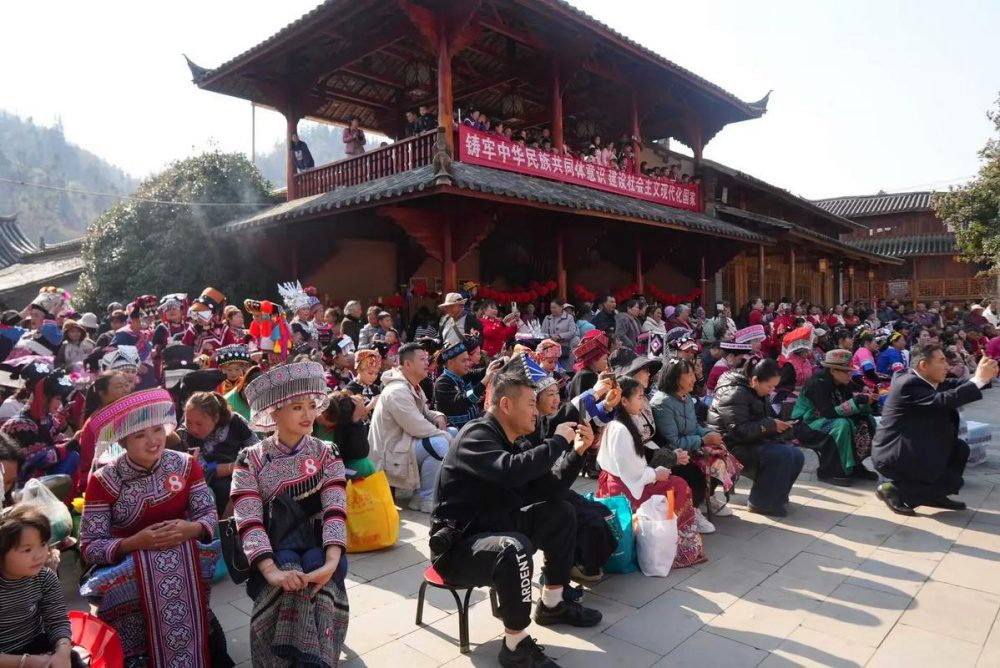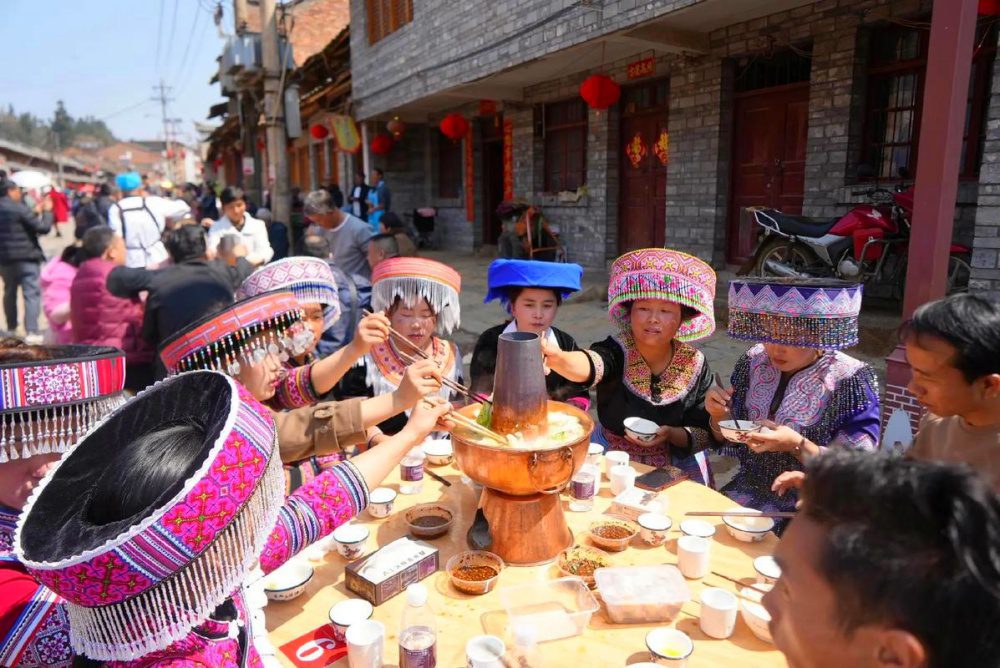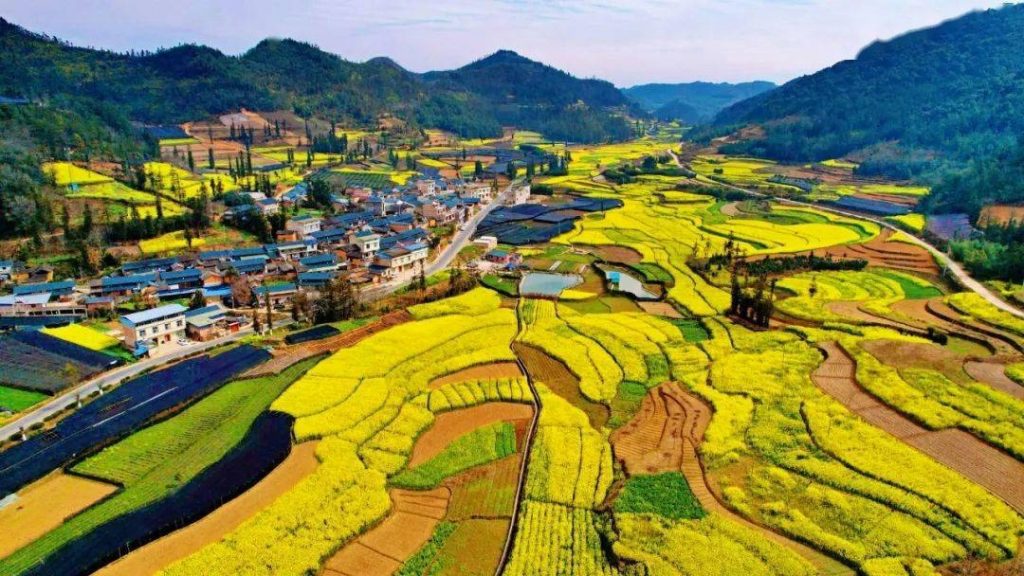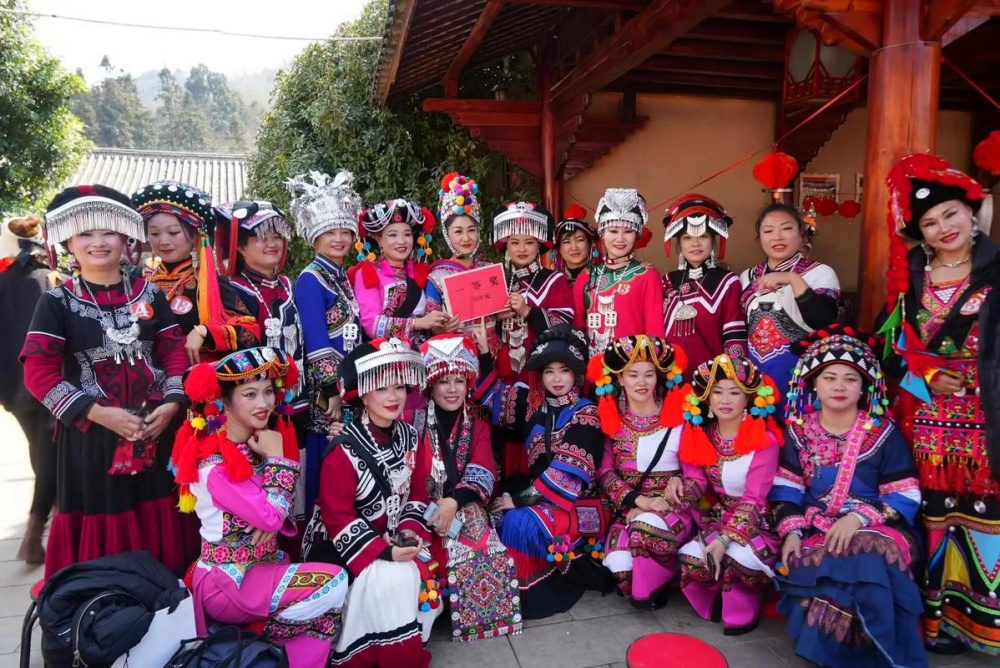
Pingba Old Town in Wenshan City, Wenshan
Chinese Name:文山市平坝古镇
English Name: Pingba Old Town in Wenshan City, Wenshan Prefecture
Pingba Town (平坝镇) is located in the southwestern part of Wenshan Zhuang and Miao Autonomous Prefecture (文山壮族苗族自治州), Yunnan Province (云南省), connecting to Gumu Town (古木镇) and Kaifa Street (开化街道) in the east, Maguan County (马关县) in the south, Xin Street Township (新街乡) in the west, and Xigu Township (喜古乡) and Xiajie Town (小街镇) in the north. The town serves as a transit hub between Wenshan, Maguan, and Honghe Prefecture (红河州), covering an area of 262.6 square kilometers and home to a population of 37,264 as of the end of 2019.
Pingba Old Town has a rich historical legacy, dating back to the Qing Dynasty (清朝) when it was divided into Kaifa (开化) and Yongping (永平) districts. Over the years, it underwent several administrative changes, with Pingba Town being formally established in 1999.
History and Cultural Significance
1.1 Historical Honors and Titles
Pingba Old Town shines as a cultural gem of Wenshan (文山) due to its deep historical roots. It is the birthplace of the Wenshan Sanqi (文山三七) herb, which has gained international recognition. Pingba’s recognition as a Historical and Cultural Town of Yunnan Province in 2014 and its inclusion in the Seventh Batch of China’s Historical and Cultural Towns in 2019 has helped amplify its influence and heritage.
1.2 Geographical Location and Administrative Evolution
The name “Pingba” comes from its location between two mountains, where a flourishing market developed during the Qing Dynasty. Over time, Pingba was governed by different administrative divisions, from the Ming Dynasty (明代) to modern-day reforms. It was part of Jiao Hua Three Ministers’ Office (教化三部长官司) in the past and went through several names, eventually becoming Pingba Town in 1999.
1.3 Important Cultural Relics
In 1926, a bronze drum from the Wanjia Ba-type (万家坝型铜鼓) was unearthed in Pingba. Dating from the late Spring and Autumn Period to the early Warring States Period, this drum is a testament to Pingba’s mastery of bronze casting over 2600 years ago. It is considered a valuable cultural artifact and marks Pingba as a historical center for metallurgy. The ao guo (鏊锅), a traditional cooking vessel, is another lasting cultural symbol, illustrating the town’s deep cultural traditions.
Economy and Industry
2.1 Origin and Development of Wenshan Sanqi
Pingba is the largest township in southern Wenshan, covering 260.7 square kilometers. Wenshan Sanqi, a medicinal herb, has become the town’s primary economic pillar. The favorable natural environment in Pingba has allowed the herb to thrive, contributing significantly to the local economy.
2.2 Transportation and Culinary Culture
Historically, Pingba served as a transportation hub for horse caravans carrying Wenshan Sanqi to different parts of China and abroad. Today, Pingba remains a key culinary destination, particularly famous for its “Ao Guo Tofu” (鏊锅豆腐), which is a traditional local dish made using tofu, peas, fermented tofu, and other ingredients, served in a distinctive pot, offering a one-of-a-kind dining experience.
Modern Development and Achievements
3.1 Agricultural Growth and Economic Data
The cultivation of marigold has expanded to cover 6947 acres, generating an income of 17.37 million yuan. Similarly, the planting of rapeseed on 7449 acres has added an additional 3 million yuan in revenue. Between 2002 and 2018, the total agricultural output grew from 81.09 million yuan to 310.49 million yuan, a 3.8 times increase. Meanwhile, per capita income for farmers increased by 8.9 times, reaching 10,725 yuan.
3.2 Development of Pingba as a Historical and Cultural Town
Pingba Old Town is working towards becoming a national historical and cultural town, emphasizing its unique Sanqi culture and architectural heritage to enhance its tourism appeal. These efforts aim to shape Pingba’s identity as a cultural landmark and establish a strong brand for the town.
Cultural Features of Pingba Old Town
4.1 Architectural Style and Historical Relics
The architecture in Pingba is characterized by traditional courtyard houses and ancient buildings, with unique features such as the two-drip water style (二滴水式建筑), horse-saddle-shaped firewalls, and scorpion-tail shaped roof ridges. These styles reflect the deep cultural history of Pingba. The town also boasts several ancient inscriptions, marking important historical events and the evolution of its land use.
4.2 Wenshan Sanqi and Its Economic Impact
Pingba is the birthplace of Wenshan Sanqi, and the development of the herb has transformed the town into an economic powerhouse. Sanqi is now a billion-dollar industry in the region, with 70% of the workforce involved in its cultivation coming from Pingba. The town’s historical importance as a cultural and economic hub continues to draw people from across the region.
Future Development of Pingba Old Town
5.1 Cultural Heritage and Branding
Pingba Old Town is dedicated to preserving its Sanqi culture and unique architectural style, working towards the development of a national cultural heritage town. This initiative will help solidify Pingba’s position as an important cultural destination while promoting its heritage to a global audience.
5.2 Core Values of the Old Town
Pingba Old Town is known as the birthplace of Sanqi culture, with its 1500-meter ancient street and over 300 buildings from the Ming and Qing Dynasties (明清时期), including temples and guild halls. By 2025, the town will open a Sanqi Origins Museum (三七溯源馆), which will showcase the history and medicinal value of the herb.
Unique Experiences
6.1 Architectural Aesthetics
Pingba Old Town features Qing Dynasty (清代) residential buildings and traditional courtyard homes, showcasing wooden brick walls and flying eaves adorned with decorative beast sculptures. The town also preserves an ancient drainage system, demonstrating the advanced engineering skills of the Ming Dynasty (明代).
6.2 Festivals and Folk Activities
The Annual Rapeseed Flower Food Festival (油菜花美食节) is a major event, with impressive revenue generated each year. Other festivals include the Torch Festival (火把节) and the Long Street Banquet (长街宴), offering visitors a chance to enjoy local traditions and festivities.

Travel Services
7.1 Must-Try Food
Visitors should try the local specialties, including Qiao Su (荞酥), Ao Guo Feast (鏊锅宴), and Stinky Tofu (臭豆腐).
7.2 Transportation
Pingba Old Town is just 1 hour by car from the city center, with ample parking available.
7.3 Unique Accommodation
For an authentic experience, guests can stay in one of the Ming and Qing-style inns (明清风格民宿), which are being renovated to preserve the town’s historical charm.
Latest Developments
8.1 “Beautiful Town” Project
In 2024, Pingba launched the “Beautiful Town” project, which includes renovating the facades of 292 houses and standardizing shop signage. The project also includes the creation of three pocket parks and a new wastewater drainage system.
8.2 Economic Growth
The Qiao Su Factory (荞酥厂) is expected to begin production by July 2025, with an estimated annual output value of 3 million yuan.
Practical Tips
9.1 Best Time to Visit
The ideal times to visit Pingba are in February for the rapeseed flower sea and March for pear blossoms, when the region is adorned with beautiful blooms.
9.2 Hidden Gems
-
Changpu Tang Hot Springs (菖蒲塘温泉) is located just 20 minutes by car from the Old Town.
-
Laojun Mountain (老君山) offers a great hiking opportunity and the chance to explore ancient silver mine ruins.

 7 Days GolfingTour
7 Days GolfingTour
 8 Days Group Tour
8 Days Group Tour
 8 Days Yunnan Tour
8 Days Yunnan Tour
 7 Days Shangri La Hiking
7 Days Shangri La Hiking
 11 Days Yunnan Tour
11 Days Yunnan Tour
 6 Days Yuanyang Terraces
6 Days Yuanyang Terraces
 11 Days Yunnan Tour
11 Days Yunnan Tour
 8 Days South Yunnan
8 Days South Yunnan
 7 Days Tea Tour
7 Days Tea Tour
 8 Days Muslim Tour
8 Days Muslim Tour
 12 Days Self-Driving
12 Days Self-Driving
 4 Days Haba Climbing
4 Days Haba Climbing
 Tiger Leaping Gorge
Tiger Leaping Gorge
 Stone Forest
Stone Forest
 Yunnan-Tibet
Yunnan-Tibet
 Hani Rice Terraces
Hani Rice Terraces
 Kunming
Kunming
 Lijiang
Lijiang
 Shangri-la
Shangri-la
 Dali
Dali
 XishuangBanna
XishuangBanna
 Honghe
Honghe
 Kunming
Kunming
 Lijiang
Lijiang
 Shangri-la
Shangri-la
 Yuanyang Rice Terraces
Yuanyang Rice Terraces
 Nujiang
Nujiang
 XishuangBanna
XishuangBanna
 Spring City Golf
Spring City Golf
 Snow Mountain Golf
Snow Mountain Golf
 Stone Mountain Golf
Stone Mountain Golf















